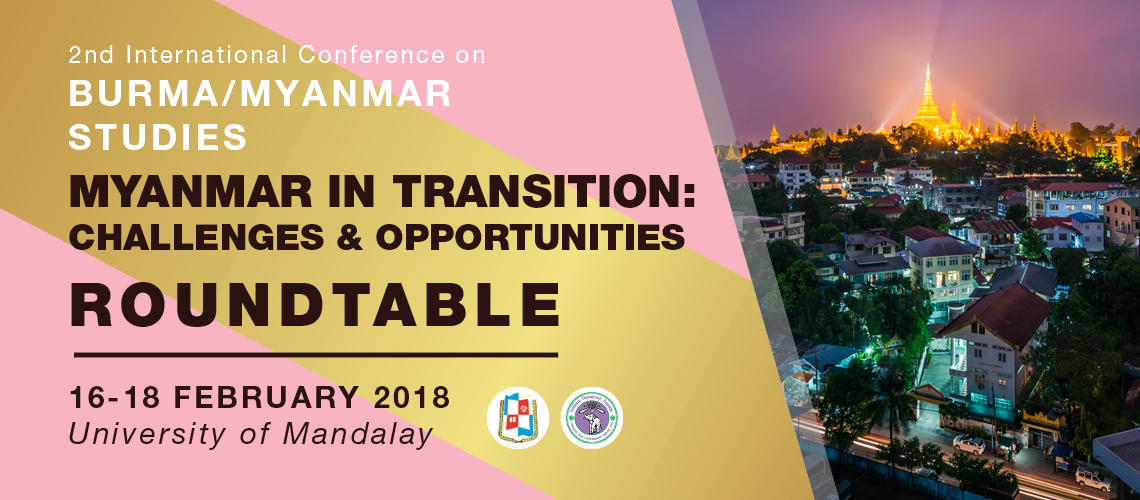
Session 1 Room 1 10.00-11.30 Friday 16 Feb (Day 1)
Myanmar’s transition today is really the fourth of many “transitions”:
- from independence in 1948 to 1958;
- from 1958 to 1962;
- from the March 1962 coup d’etat and the Revolutionary Council until
- the introduction of the new constitution—granting considerable powers to the military—and the NLD victory in the election of 2015.
Today’s NLD government faces enormous economic challenges—agricultural reform, infrastructure, human resource development, revenue and tax system, natural resource management, trade and foreign investment. However, Myanmar has rich natural resources, with a young working-age population and strategic location in Southeast Asia.
In 2016, the new NLD government started with a 12 point economic policy. By the end of 2017, the government drafted development assistance priorities and preferences in the National Development Assistance (DAP) Policy, and is in the process of drafting another strategic document, tentatively known as “Myanmar Sustainable Development Plan (MSDP)” which will communicate its strategic vision and directions for national development.
In 2018 Myanmar’s financial sector will be subject to a number of critical reforms, including the first meaningful bank regulation, minimum capital standards, liquidity, requirements for proper loan classification, comprehensive reorganisation and rehabilitation of major state-owned banks, and further foreign investment. Meanwhile, the first steps toward liberalisation of interest rates will be made, and their importance assessed.
The private sector is critically important as an engine of growth and the government will soon review the major constraints faced by business, drawing on recent research by development partners, and will explore:
- updating the legal and regulatory framework;
- formulating policies to promote trade and investment, productivity and competitiveness;
- improving infrastructure and connectivity;
- boosting human capital;
- strengthening the financial sector; and
- reforming state-owned enterprises
Roundtable topics and speakers
1. Political Economy of Myanmar – Myo Myint, Chairperson, Renaissance Institute (RI)
2. Myanmar National Development Strategy – Min Ye Paing Hein, Executive Director, Myanmar Development Institute, (MDI)
3. Financial Sector and Reforms – Sean Turnell, Director of Research, MDI, and Special Consultant to the State Counselor
4. The Role of Private Sector in Myanmar Economy – Peter Brimble, Team Leader, DaNa Facility, DFID
Coordinator: Dr. Thein Swe

